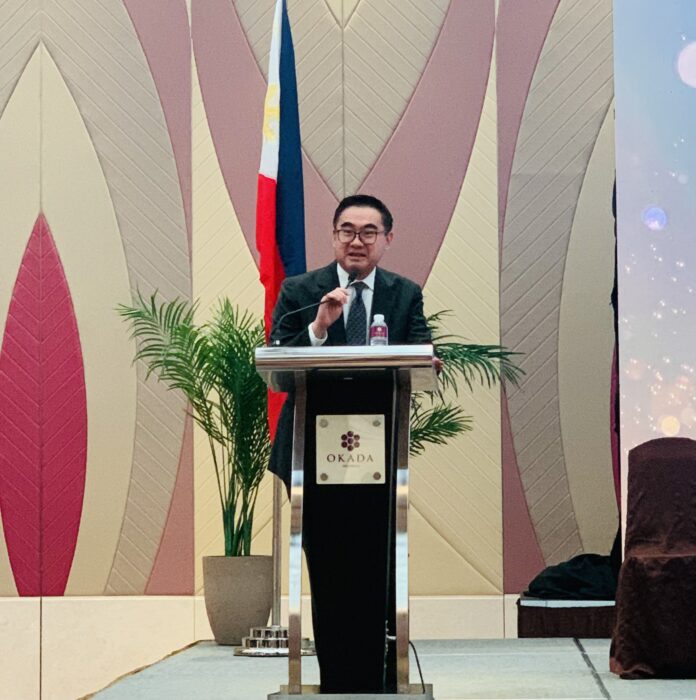The export sector has yet to exploit an untapped revenue source estimated at some USD49 billion for a number of reasons, chief among them the sector’s inability to diversify, among other critical factors.
This was cited by the head of the Investment and Economic Affairs Office, an advisory body led by former Robinsons Land Corp. president and chief executive officer Frederick Go before a gathering of export executives under the Philippine Exporters Confederation Inc. (Philexport), saying this was why the government has reworked the Philippine Export Development Plan covering the years 2023 through 2028 and play catch up with neighbors in the ASEAN.
Go said while the Philippines has a lot of potential for export growth, the industry is hounded not only by trade barriers but also by unnecessary operating costs on top of the non-diversified nature of its export sector.
To achieve economic transformation and optimize the potential, Go said the government has adopted reforms and pursued programs expanding the key industries, attracting foreign investments and has invested in infrastructure in recent years.
It was along this line that he reiterated the call for nickel miners to sell processed output rather than raw nickel to take advantage of higher prices and generate added revenue stream for the nation’s coffers.
Go said processed or pure nickel has far more value than nickel ore that Indonesia has already successfully exploited.
“The key here is is peer studying Indonesia’s success story with its downstream nickel policy which began 10 years ago and transformed the country into a global powerhouse for nickel processing,” Go, former president and CEO at Robinsons Land Corp. in private life, said.
According to Go, the Philippines is in a viable position to capitalize and expand its export market by selling processed nickel given the resource is a key component to the production of electric batteries, high-strength steel, electric cables, even rocket engines.
“We are the 6th largest in the world in terms of nickel reserves but more importantly, we are the second largest exporter and I believe that the Philippines has a huge potential of capturing the value chain by not exporting raw nickel but by processing it downstream and exporting the processed nickel, or what is otherwise known as pure nickel or nickel concentrate,” he said
Go said Indonesia has already showed how it can be done “and all we need to do now is to learn from it and improve on it.”
To succeed in strengthening and developing the domestic industries, the government has opened up the country to more foreign investments to sharpen the country’s competitive edge and spur further growth, he said.
According to Go, his mandate is to monitor and assist strategic and high-value investors in navigating the pursuit of their investment plans in the Philippines, particularly in the field of renewable energy, agriculture, mining, tourism, manufacturing, digitalization and infrastructure.
“We are working on select recommendations from the private sector that are approved for implementation by President Ferdinand Marcos Jr, he said.







